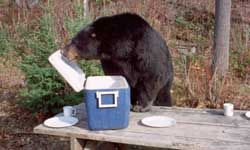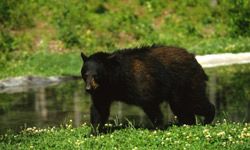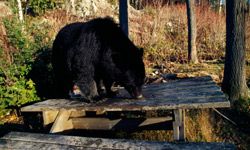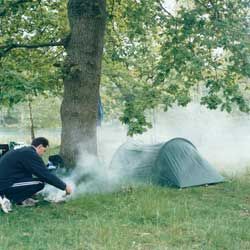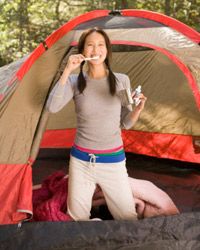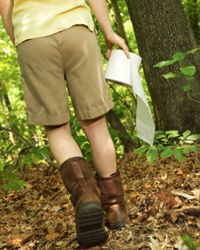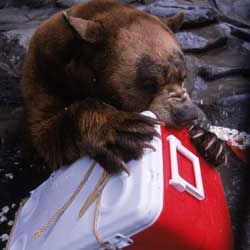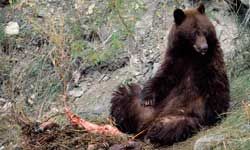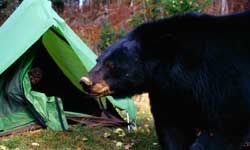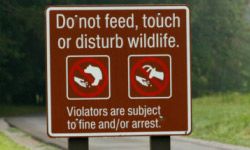You and your friends are packing up the wagon for some car camping in the great outdoors. In addition to a couple of tents and multiple sleeping bags, you've packed a cooler full of burgers and hot dogs to slap on the campground grill when you pull in for dinner. And you've stuffed your daypack with peanut-butter-flavored granola bars and a chocolaty trail mix for tomorrow's long hike. One thing's for sure, the eating's going to be great on this trip -- that is, unless one of Mother Nature's most fearsome and powerful creatures decides it wants to share the wealth.
Whether you're car camping like these folks or backpacking deep into the woods, you need to take preventive steps to avoid a bear's sense of smell is seven times stronger than a bloodhound's [source: American Bear Association]. It uses this acute sense to shop for a mate, detect threats and, most importantly, locate food. If a bear smells your hotdogs sizzling on the grill, it might decide to pop in for a visit.
Advertisement
A bear may lumber into your campsite for attractants like food and trash -- and even your scented lip balm. Obviously, you can't go without eating while you camp, but you can manage odors to promote bear-free camping quarters (more on that later).
But first, we'll take a look at why sounds (or a lack thereof) will attract bears to you.
